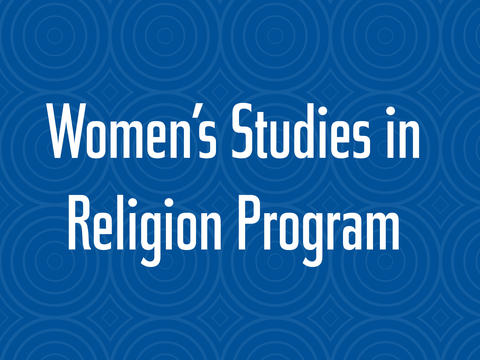WSRP Announces 2022–23 Research Associates

One returning scholar and five new Research Associates will join the Women’s Studies in Religion Program at HDS to work on book-length projects during the 2022–23 academic year. By bringing together scholars from different disciplines and research areas, commonalities in religion and gender emerge.
While working on their projects, the WSRP Research Associates teach a one-semester course and deliver a lecture on their research.
Kinitra D. Brooks
Visiting Associate Professor of Women’s Studies and African-American Religions
Project title: Divine Conjurers: Recovering Black Women’s Intellectual Histories of Spirit Work
This project explores the origins of Black Southern women’s spirit work with an emphasis on the West African influences upon the spiritual and physical healing practices of the conjure woman.

Elyan Jeanine Hill
Visiting Assistant Professor of Women's Studies and African Religions
Project title: Spirited Choreographies: Women's Ritual, Identity, and History-Making in Ewe Performance
Conceiving of spirit possession rituals as forms of critical social practice, the project engages with women’s associations that orchestrate festival and ritual events. These female ritual specialists propose solutions to perceptions of economic decline by transmitting moral and cultural knowledge to young women and generating narratives of enslavement, migration, and trade.

Jordan R. Katz
Visiting Assistant Professor of Women’s Studies and Judaism
Project title: Delivering Knowledge: Midwives and the Making of Jewish Culture in Early Modern Europe
This project examines the dynamic role of the early modern European Jewish midwife, arguing that Jewish midwives played critical roles in early modern European Jewish communities, acting simultaneously as extensions of communal authority, as municipal employees, and as agents of burgeoning medical bureaucracies.

Xhercis Méndez
Visiting Associate Professor of Women’s Studies and African American Religions
Project title: Conjuring (An)Other Humanity: Decolonizing Feminist Methodologies from Within Afro-Latinx Ritual
This project takes as its central case Afro-Cuban Santería to reevaluate the methods and frameworks through which gender researchers have been taught to observe, interpret, and analyze the lives and experiences of women and queer practitioners of color in non-western religious systems.

Rahina Muazu
Visiting Lecturer on Women’s Studies and Islam
Project title: The Female Voice in the Qurʾan and Qurʾan Commentary: Rereading verse 33:32 from a Gender Perspective
Is the voice of a Muslim woman part of her nudity (‘awra)? Using gender as an analytical category, this research plans an exegetical hermeneutical study of the Qur’anic verse 33:32 to find out the position of the female voice and how it is interpreted in the West African Hausa society. Drawing on extensive field work, the project makes a valuable and new contribution to women’s studies by both engaging the lived experiences of Black West African Muslims and by contributing to debates on women’s vocal nudity and women’s perception.

Tulasi Srinivas
Visiting Professor of Women's Studies and South Asian Religions
Colorado Scholar
Project title: The Runaway Goddess: Water, Gender and Caste in a Climate Apocalypse
Highlighting the paradox between Hinduism’s view of water as female, sacred and sentient, and the endemic pollution of water resources and climate- driven drought in contemporary India, this ethnographic and archival project considers the significance of gender, caste and religion in emerging climate justice initiatives to interrogate the existential ethics at stake.
